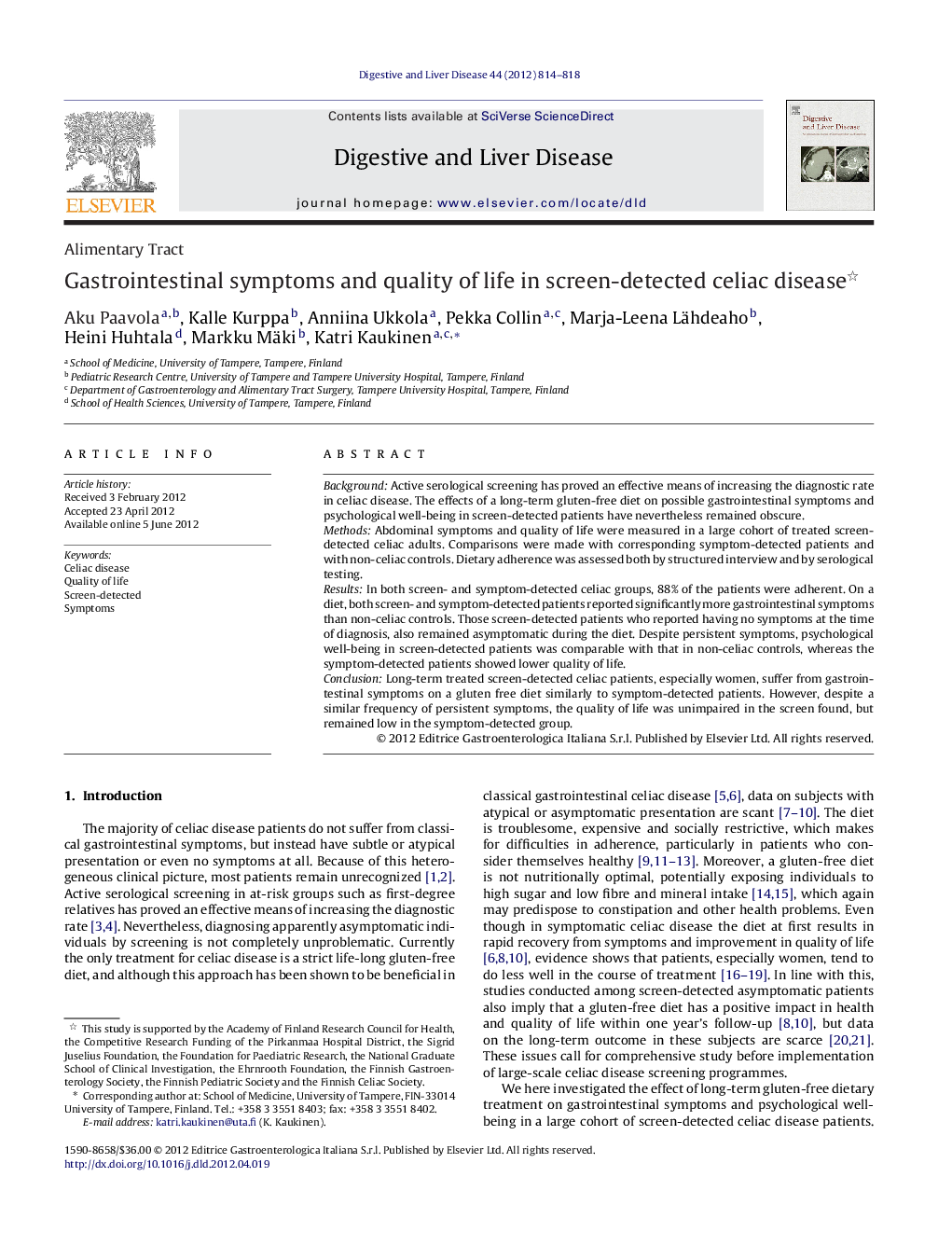| Article ID | Journal | Published Year | Pages | File Type |
|---|---|---|---|---|
| 3262474 | Digestive and Liver Disease | 2012 | 5 Pages |
BackgroundActive serological screening has proved an effective means of increasing the diagnostic rate in celiac disease. The effects of a long-term gluten-free diet on possible gastrointestinal symptoms and psychological well-being in screen-detected patients have nevertheless remained obscure.MethodsAbdominal symptoms and quality of life were measured in a large cohort of treated screen-detected celiac adults. Comparisons were made with corresponding symptom-detected patients and with non-celiac controls. Dietary adherence was assessed both by structured interview and by serological testing.ResultsIn both screen- and symptom-detected celiac groups, 88% of the patients were adherent. On a diet, both screen- and symptom-detected patients reported significantly more gastrointestinal symptoms than non-celiac controls. Those screen-detected patients who reported having no symptoms at the time of diagnosis, also remained asymptomatic during the diet. Despite persistent symptoms, psychological well-being in screen-detected patients was comparable with that in non-celiac controls, whereas the symptom-detected patients showed lower quality of life.ConclusionLong-term treated screen-detected celiac patients, especially women, suffer from gastrointestinal symptoms on a gluten free diet similarly to symptom-detected patients. However, despite a similar frequency of persistent symptoms, the quality of life was unimpaired in the screen found, but remained low in the symptom-detected group.
